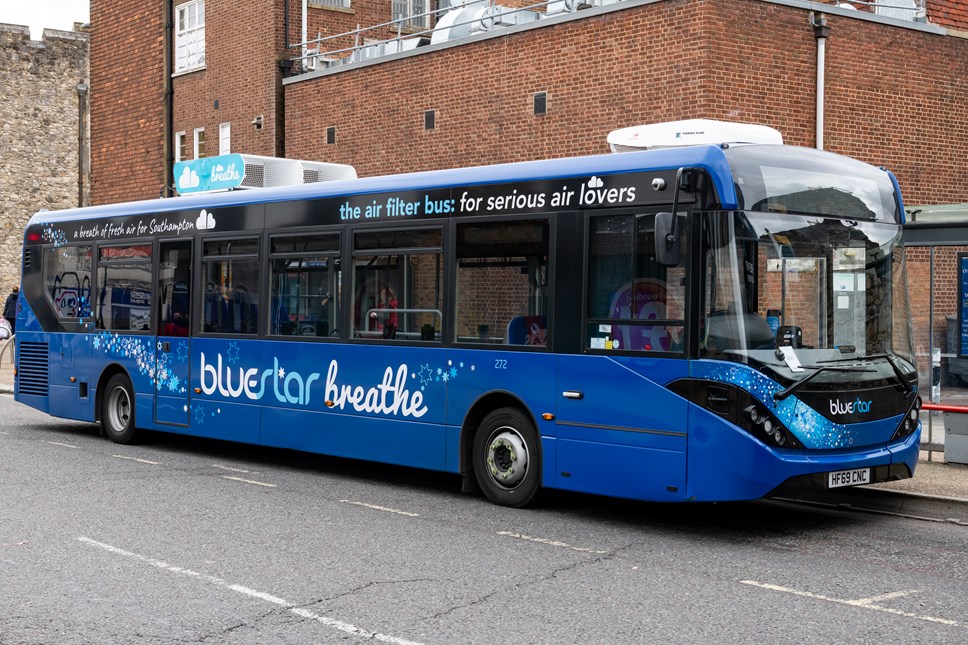
Go-Ahead expands air-filtering bus fleet following trial success
The Go-Ahead Group (LON: GOG) is to expand its landmark “air-filtering” bus programme following a successful 100-day pilot and 9,000 miles covered in Southampton.
The trial, which launched in September 2018, saw Go-Ahead subsidiary Bluestar operating the bus mounted with a unique filter, cleaning 3.2 million cubic metres of the city’s air.
- Go-Ahead will increase its unique fleet of air-cleaning vehicles, deploying five buses in Southampton by end of 2019
- Results from initial pilot have shown that one bus has the capacity to draw 65g of particulates from the air over 100 days – just over the weight of a tennis ball.
The filter exceeded all expectations for its potential benefit to the environment, extracting particulate matter (PM10) weighing a total of 65g from Southampton’s air - roughly the same weight as a tennis ball – over the course of the trial.
Following the success, all five of Bluestar’s buses on Southampton’s Route 7 will be fitted with air-filters, cleaning the air on an 11.5-mile path running across the city.
While the single bus has the capacity to clean the air on its route every 215 days, to a height of 10 metres, it will take just nine days for the newly expanded fleet to achieve the same feat.
Go-Ahead’s estimates show that the expanded fleet could remove as much as 1.25kg of PM10 from the air every year. If the air-filter was deployed on 2,500 buses, it could remove as much as 588kg of PM10 particles every year.
In parallel, Bluestar has been fitting solar panels to buses, with a total of 19 vehicles to have them in place by the end of July. When five further buses are fitted with air filters, one of them will have a solar panel as well. This will enable a trial later this year to see whether solar energy can be used to make the air filter completely self-sufficient.
Go-Ahead Group Chief Executive David Brown said: “When we launched the air filtering pilot, we wanted to play our part in tackling the crisis in urban air quality and show that buses could be an answer to pollution in cities. We already know that a fully loaded double decker can take up to 75 cars off the road, reducing congestion and pollution, and now we have hard data showing that buses with the fitment of an air filter can actively improve air quality.”
“Our air-filtering system has exceeded expectations on how it benefits the environment. Rolling it out on more buses is the next step for Go-Ahead, and we would encourage authorities to get involved and help us roll this out at a faster rate.
Southampton was chosen as the location for the pilot following a 2018 World Health Organisation (WHO)[1] report, which warned that the city is at its limit of unsafe air pollution.
The filter was designed and manufactured in collaboration with PALL Aerospace and fitted on to the roof of the bus. It is made in an engine barrier-type filter construction and designed to remove up to 99.5% of particles from the air without any impact on the passenger or travel experience. It was deployed on one of Bluestar’s low-emission Euro VI buses, which produce no more than 0.08g/km of nitrogen oxide.
